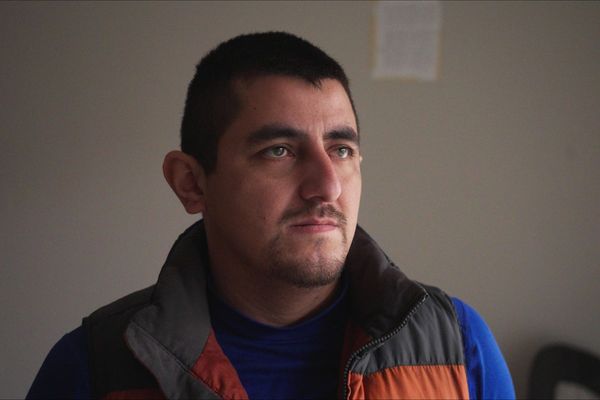There can be no doubt that the end of Assad’s rule in Syria has weakened Russia’s position in the Middle East and dented Moscow’s international standing, such as it is.
After an early rapprochement with the West, including a 2002 visit to the UK, Bashir al-Assad had become almost as close an ally for Moscow as his father, Hafez, had been in Soviet times. In 2015, Russia supplied air power that helped turn the tide of the Syrian civil war – and it was Moscow that last week provided refuge for him and his family as rebel forces closed in on the capital.
Whatever happens to Russia’s two military bases in Syria, Russia’s projection of power in the Middle East would seem to be at an end – for the time being, at least. This makes Russia almost as big a loser in the regional power dynamic as Iran.
For Russia, however, the impact of Assad’s fall may not be limited to its military and political reach abroad. There could be reverberations much closer to home.
Twelve years ago, the uprisings known as the Arab Spring resonated in Russia in two quite different ways. On the one hand, for all that they failed to install democracy, they showed that people, especially young people, had the power to resist. On the other – and this was the argument that then prevailed – the turmoil provided a further object lesson in the value of stability, following the violent upheavals in Iraq and Libya almost a decade before.
This was the argument that Vladimir Putin was able to use in the face of street protests against his decision to stand again for the presidency in 2012. Four years before, he had essentially swapped jobs with his prime minister to comply with the constitution’s term limits. His decision to return to the top job prompted fury, especially among a new, post-communist generation of Russians who had hoped for change.
Putin returned to the presidency and ran a stable, if increasingly repressive, ship, capitalising on his successful and largely bloodless annexation of Crimea from Ukraine in 2014. The victory celebrations in the Kremlin were a sea of glowing faces and shining eyes. After what was seen as the humiliation of the Soviet collapse, national pride was being restored.
For many Russians, this may mark the high point of Putin’s presidency. The memory of those glory days was, nonetheless, short-lived.
The fall of Assad and his exile in Moscow have received precious little coverage so far in the Russian media, beyond the stark announcement that he and his family had been granted asylum on humanitarian grounds. This does not mean, however, that developments in Syria have not been noticed, or that they do not have the potential to have a profoundly destabilising effect.
For the fall of Assad has demonstrated not just the limits of Russian power abroad, but the limits of personal power, too.
Bashir al-Assad’s authority evaporated in the most spectacular way. The centre could not hold in the face of a divided and demoralised population and a military, once loyal, that defected en masse. An armed and well-organised group swept to power, encountering almost no resistance at all.
What happens next in Syria could be very different from today’s widespread public rejoicing. But what happens in Russia could also defy predictions.
Russia is not a happy country. Polls, to the extent they can be relied upon, suggest half the population wants an end to the war in Ukraine. If Putin gives every appearance of being solidly in control, the lesson from Assad is that a leader can appear to be in power, until suddenly he isn’t.
Power stems from credibility, and credibility can dissolve in an instant. One of the most striking aspects of the brief Wagner revolt was the lack of resistance, not just on the streets, but from part of the military command, as its tanks processed up the motorway towards Moscow.
And while there may be no armed opposition force in Russia, as there was in Syria, it cannot be ruled out that there are sections of the officer class that are less enamoured of current operations than others, or that certain units could lose the will to fight the enemy, and gain a following. After all, this is largely how and why Russia ended its war with Germany in 1917.
To which might be added that abdication, in the way of Tsar Nicholas II, might be the way Putin could decide to go, rather than mount any resistance. The word is that he advised Assad to accept exile rather than risk the ignominy suffered by Saddam Hussein or Gaddafi by staying on.
Nor need the absence of any obvious alternative necessarily be a hindrance. Few imagined that Assad would be toppled in the particular way, or by the particular group, that he was. Nor are those who do the toppling necessarily those who will then exercise power.
Whether Putin’s days are also numbered, or how his power might end, is pure speculation. But ever since he started making life difficult for the West – which can be dated perhaps from his 2007 attack on Nato expansion at the Munich Security Conference – his eventual demise has been seen by some as a kind of solution. Well, maybe, or maybe it could make matters worse. I take no side in this argument.
My caution is, rather, against expecting that a Russia without Putin would automatically be very different, either “better" or “worse, than it is today. The wisdom about nations having permanent interests, rather than permanent friends or enemies, still applies.
The invasion of Ukraine reflected Putin’s fears for Russia’s security in the event that Ukraine joined a Western military or defence bloc. This is a perception of Russia’s national interest that is likely to live on – even if Putin does not.







